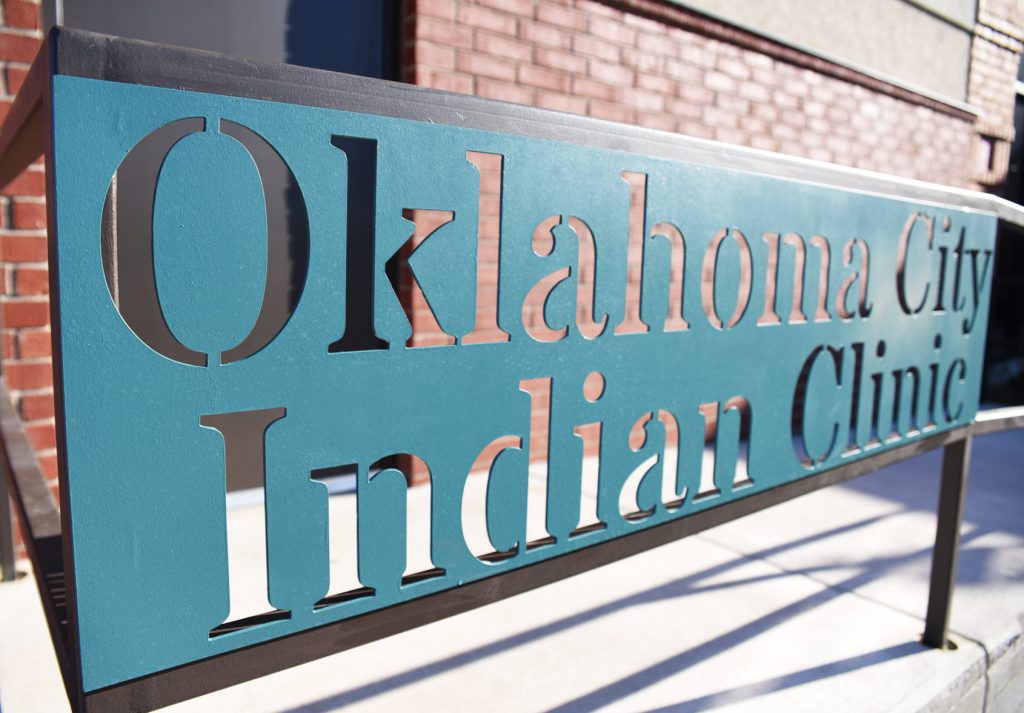
Photo courtesy Oklahoma City Indian Clinic (OKCIC)
FOR IMMEDIATE RELEASE
August 30, 2022
Opioid Misuse Prevention Day highlights prescription drug safety
Oklahoma City Indian Clinic promotes Opioid Misuse Prevention Day.
OKLAHOMA CITY – Oklahoma City Indian Clinic (OKCIC), a 501(c)(3) nonprofit clinic providing health and wellness services to American Indians in central Oklahoma, wants to provide information about opioid misuse prevention and treatment.
Opioid Misuse Prevention Day will be observed on August 31, 2022, to raise awareness of prescription drug misuse and promote treatment resources. According to the Centers for Disease Control and Prevention, overdose deaths involving opioids have been steadily increasing in recent years. In 2020, 68,630 people in the United States died due to opioid-involved overdose. Fortunately, treatment options are available, and there are precautions people can take to reduce the risk of opioid misuse.
“Opioids are prescribed with the specific patient in mind,” said Janice Hixson, MD, OKCIC’s Chief Medical Officer. “Medical providers consider your health history, height, weight and other factors when they write a prescription. Sharing your medication with others can be fatal.”
According to Substance Abuse and Mental Health Services Administration, 51.3% of people ages 12 and older who misused prescription pain relievers got the pills from a friend or family member. You can prevent others from using your medication by storing pills in a locked box. If you need to throw away leftover medication, dispose of it at a medication take back location. OKCIC has a medication drop box in the lobby of our 4913 W. Reno Ave. location. Find other take back locations here: thinksmartok.org
“You should never crush up or flush medications,” Hixson said. “Flushing medications can pollute our water supply, and crushing up medication puts you at risk of inhaling a dangerously high dose. The safest way to dispose of prescription opioids is through a take back program.”
The risk for overdose in those who misuse opioids is high, but Naloxone may be able to reverse the overdose if taken in time. Naloxone is available at many pharmacies, and you can text “Naloxone” to 55155 to find locations near you. Oklahoma residents can visit https://okimready.org/
If you need treatment for opioid misuse, there are a variety of options, including medication assisted treatment (MAT). Those who undergo MAT are given medications to stabilize craving and withdrawal cycles. OKCIC offers MAT to eligible patients.
“There are several approaches to treating Opioid Use Disorder,” Hixson said. “Talk to your medical provider to see what would work best for you.”
OKCIC patients can schedule an appointment at (405) 948-4900 ext. . Find other treatment locations at https://findtreatment.samhsa.
Opioid misuse is dangerous, but there are preventative measures to reduce the risk of overdose and addiction.
About Oklahoma City Indian Clinic
Oklahoma City Indian Clinic was established in 1974 to provide excellent health care and wellness services to American Indians in central Oklahoma. The clinic staff cares for more than 22,000 patients from over 200 federally recognized tribes every year. American Indians can receive a range of services, including medical, dental, pediatrics, prenatal, pharmacy, optometry, physical fitness, nutrition, family programs and behavioral health services. For more information, please call (405) 948-4900 or visit www.okcic.com.
Tuba City Regional Health Care Corporation (Navajo Nation)
HHS Small Ambulatory Program Awards $55 Million to 15 Tribes and Tribal Organizations (Indian Health Service)
Indian Health Service Announces New Deputy Director for Quality Health Care and Enterprise Risk Management (Indian Health Service)
Federal Emergency Management Agency (FEMA)
White House Office of Management and Budget (Joe Biden Administration)
Tuba City Regional Health Care Corporation (Arizona, Navajo Nation)
Oklahoma City Indian Clinic (OKCIC)
Indian Health Service (Department of Health and Human Services)
Navajo Nation Town Hall (Arizona, New Mexico, Utah)
Navajo Nation (Arizona, New Mexico, Utah)
Tribal organizations statement on advance appropriations for Indian Health Service
Indian Health Service Statement on Advance Appropriations (Department of Health and Human Services)
Indian Health Service (Department of Health and Human Services)
Indian Health Service (Department of Health and Human Services)
